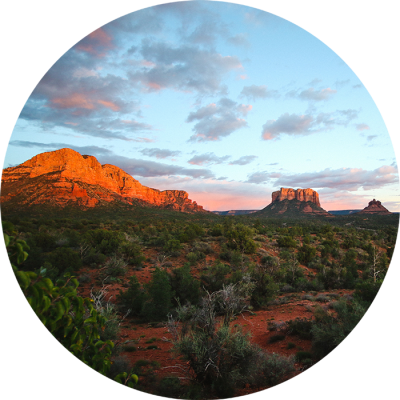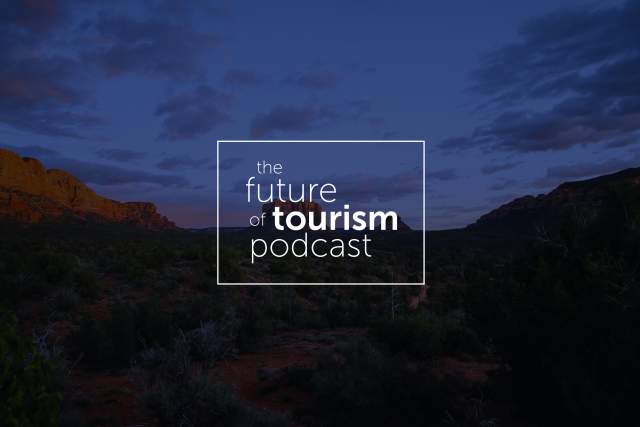In this time of global crisis and uncertainty, we put the call out to leaders, CEOs, strategists and consultants to sit down and tell us, in their own words, what is going on and what is going to happen next in this vital global industry.
For nearly a decade in our industry, progressive destinations and leaders have been working to develop and refine three key attributes that they know will play a dominant role in the success of global destinations, large and small, now and in the very near future.
Some destination organizations are either already at work on programs and initiatives that address stakeholder engagement, build community shared values around tourism and deliver digital excellence programs in social marketing and commerce... but the slope of the adoption curve in general has been low and slow.
The lag to adopt change is understandable, perhaps even defensible. In a global tourism economy that has seen almost two decades of unprecedented expansion, our entrenched models have done very well in terms of growth and yield... but all that has changed with COVID-19.
One only has to look to Europe and the pressing issue of over tourism to see a harbinger of what happens when the local population, the local polity and frankly ‘the local everything in general” isn't being included in and served by tourism development.
The lessons we can learn from the European Cities Marketing Group as they have mobilized over the past five years to understand and address the necessity of a broadly distributed local base, of an engaged local community in the face of a revolt against tourism, are directly applicable to the recovery period we now face with COVID-19.
With the future impacts of this crisis both apparent and sobering, nobody is arguing about the importance of a strong stakeholder base, a broadly shared and understood community goal for tourism, and the importance of digital excellence in socially distributed marketing and e-commerce in a brave new world.
Bill Geist sees that world and he intimately understands that these same principles, the ones that have been guiding him and his company DMOProz for over a decade, have actually been accelerated by this crisis. And in the big scheme of things, that is good news.
 Bill is a builder and the tactics he uses to build out destinations are a combination of: “what is needed now” and “how will that fit into our 10- or 20-year vision?” He is one of the early adopters of a destination model based on stakeholder engagement and alignment with civic and public partners. And he is a strong advocate for the work of Jack Johnson at Destinations International on the principle of “community shared values” as a central tenet of a destination organization’s mission.
Bill is a builder and the tactics he uses to build out destinations are a combination of: “what is needed now” and “how will that fit into our 10- or 20-year vision?” He is one of the early adopters of a destination model based on stakeholder engagement and alignment with civic and public partners. And he is a strong advocate for the work of Jack Johnson at Destinations International on the principle of “community shared values” as a central tenet of a destination organization’s mission.
Much like his European Cities Marketing peers, Bill likes to say, “it's not over tourism, it's badly managed tourism.” In January this year, well before the COVID-19 crisis was on most people's radar, Bill wrote a blog post about Sedona, Arizona and how it dealt with a negative reaction from residents on over tourism.
“During the 100th anniversary of the National Park Service, you know, Sedona is on the way to a pretty big national park,” says Bill ‘They found themselves experiencing a lot of day trippers, who really were not coming for Sedona, but they were stopping off for lunch, getting a few trinkets and moving on. Not the traditional Sedona visitor. And ultimately, the residents just threw up their hands that summer and said, ‘No more, we're done. This is not fun anymore. We don't want to live here. This is terrible.’ And they took aim at the bureau assuming that the Bureau had been the reason for this,” says Bill.
In reality, the bureau had not been marketing summer for years, they were filling shoulder season. “But that's not what Joe and Jill public thought,” says Bill “They realized they weren't speaking to Joe and Jill, so they didn't understand what we were doing.”
“It's not over tourism, it's badly managed tourism.”
“This really gets right back to Johnson’s work on shared community value. At the end of the day, who is our primary concern? It's our residents,” says Bill.
In Visit Sedona’s case, they stepped up. “I think the Sedona story is one that really shows that you can turn things around, the beauty was they immediately pivoted.” Sedona added a fourth pillar to their guiding principles: a sustainability model. And in an unprecedented response, thousands of Sedonans rallied to the concept of sustainable tourism.
Bill notes other key work by destinations across the country as best practice example of modern destination management:
“In Spokane, one of the biggest hospitals hooked up with the bureau a number of years ago for a wellness programme, with a bicycle service. It's a great way for the Bureau to hook up. The hospital was excited because they got visibility. And they could, you know, show their wellness chops”
“Rockford, Illinois has stepped up in things that a DMO would never have done in the past, you know, community cleanup, leading the charge to uplight The Riverwalk and creating an event that heralds the holiday season every year, things that the city needed”
“With Anaheim Cares, Jay Burris and his team are giving back in droves to the community to help homeless, to help communities, to help neighbourhoods with a lot of really innovative programs.”
When it comes to sustainable and exceptional destination development, Bill is an advocate and a champion, but also a seasoned vetran. He was a powerful force from 1990-97 in realizing the dream of the Frank LLoyd Wright, Monona Terrace Convention Centre in Madison Wisconsin, an asset that transformed Madison's lakefront and established its place as a national cultural icon. A project 50 years in the making .
Helping communities to take an active role in shaping their collective tourism future, that’s what Bill Geist does.

